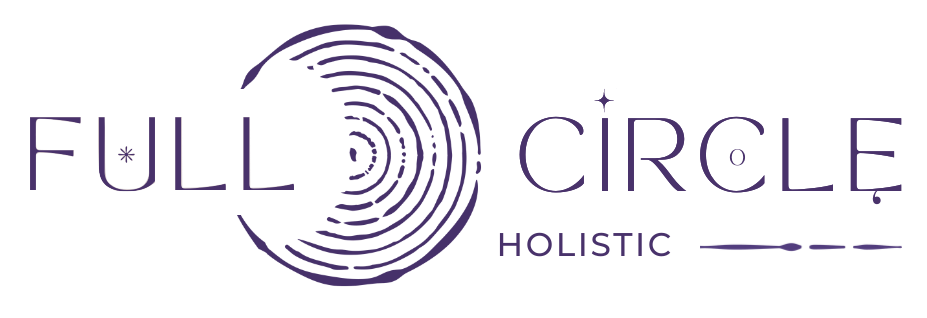Ginkgo Biloba
Clear the Fog
Ginkgo Biloba, also known as the Maidenhair tree, has a long-standing reputation for supporting brain health. With potent antioxidant and anti-inflammatory properties, Ginkgo promotes overall brain function by improving blood flow and supporting neurotransmitter balance. This increased circulation can enhance memory, focus, and mental clarity.
These interactions between brain function and Ginkgo Biloba seem to result in improved cognition, and may contribute to a reduction in the occurrence of Alzheimer’s and dementia.
For women in perimenopause, Ginkgo Biloba can be especially helpful in easing brain fog—a common symptom during this transition. By increasing blood flow to the brain and supporting cognitive function, Ginkgo may help reduce mental fatigue, improve focus, and boost memory, making it easier to stay sharp and clear-headed as hormones shift.
Traditionally, Ginkgo has also been used to support mood stability and ease PMS symptoms, making it a versatile ally in women’s health through every life stage.
Leaves of locally foraged gingko biloba and gluten free vodka
2 ounces
serving size: 1 mL/ 20 drops/ one dropper full
Rebecca’s Tips: I generally recommend 1-2 ml taken twice daily. Ginkgo is best taken with food to reduce the risk of stomach upset. Morning and mid-day doses work well to support cognitive function during the day.
Consistency is key for Ginkgo to show results, so aim to take it daily for at least 6-8 weeks to evaluate its effects.
Ginkgo pairs well with other herbs like gotu kola or rhodiola, which also support cognitive health and help with stress resilience—common needs during perimenopause.
Precautions:
Blood Thinners: Ginkgo may increase bleeding risk, so avoid it if you’re taking blood-thinning medications.
Servings per container: 60
Clear the Fog
Ginkgo Biloba, also known as the Maidenhair tree, has a long-standing reputation for supporting brain health. With potent antioxidant and anti-inflammatory properties, Ginkgo promotes overall brain function by improving blood flow and supporting neurotransmitter balance. This increased circulation can enhance memory, focus, and mental clarity.
These interactions between brain function and Ginkgo Biloba seem to result in improved cognition, and may contribute to a reduction in the occurrence of Alzheimer’s and dementia.
For women in perimenopause, Ginkgo Biloba can be especially helpful in easing brain fog—a common symptom during this transition. By increasing blood flow to the brain and supporting cognitive function, Ginkgo may help reduce mental fatigue, improve focus, and boost memory, making it easier to stay sharp and clear-headed as hormones shift.
Traditionally, Ginkgo has also been used to support mood stability and ease PMS symptoms, making it a versatile ally in women’s health through every life stage.
Leaves of locally foraged gingko biloba and gluten free vodka
2 ounces
serving size: 1 mL/ 20 drops/ one dropper full
Rebecca’s Tips: I generally recommend 1-2 ml taken twice daily. Ginkgo is best taken with food to reduce the risk of stomach upset. Morning and mid-day doses work well to support cognitive function during the day.
Consistency is key for Ginkgo to show results, so aim to take it daily for at least 6-8 weeks to evaluate its effects.
Ginkgo pairs well with other herbs like gotu kola or rhodiola, which also support cognitive health and help with stress resilience—common needs during perimenopause.
Precautions:
Blood Thinners: Ginkgo may increase bleeding risk, so avoid it if you’re taking blood-thinning medications.
Servings per container: 60
Clear the Fog
Ginkgo Biloba, also known as the Maidenhair tree, has a long-standing reputation for supporting brain health. With potent antioxidant and anti-inflammatory properties, Ginkgo promotes overall brain function by improving blood flow and supporting neurotransmitter balance. This increased circulation can enhance memory, focus, and mental clarity.
These interactions between brain function and Ginkgo Biloba seem to result in improved cognition, and may contribute to a reduction in the occurrence of Alzheimer’s and dementia.
For women in perimenopause, Ginkgo Biloba can be especially helpful in easing brain fog—a common symptom during this transition. By increasing blood flow to the brain and supporting cognitive function, Ginkgo may help reduce mental fatigue, improve focus, and boost memory, making it easier to stay sharp and clear-headed as hormones shift.
Traditionally, Ginkgo has also been used to support mood stability and ease PMS symptoms, making it a versatile ally in women’s health through every life stage.
Leaves of locally foraged gingko biloba and gluten free vodka
2 ounces
serving size: 1 mL/ 20 drops/ one dropper full
Rebecca’s Tips: I generally recommend 1-2 ml taken twice daily. Ginkgo is best taken with food to reduce the risk of stomach upset. Morning and mid-day doses work well to support cognitive function during the day.
Consistency is key for Ginkgo to show results, so aim to take it daily for at least 6-8 weeks to evaluate its effects.
Ginkgo pairs well with other herbs like gotu kola or rhodiola, which also support cognitive health and help with stress resilience—common needs during perimenopause.
Precautions:
Blood Thinners: Ginkgo may increase bleeding risk, so avoid it if you’re taking blood-thinning medications.
Servings per container: 60



